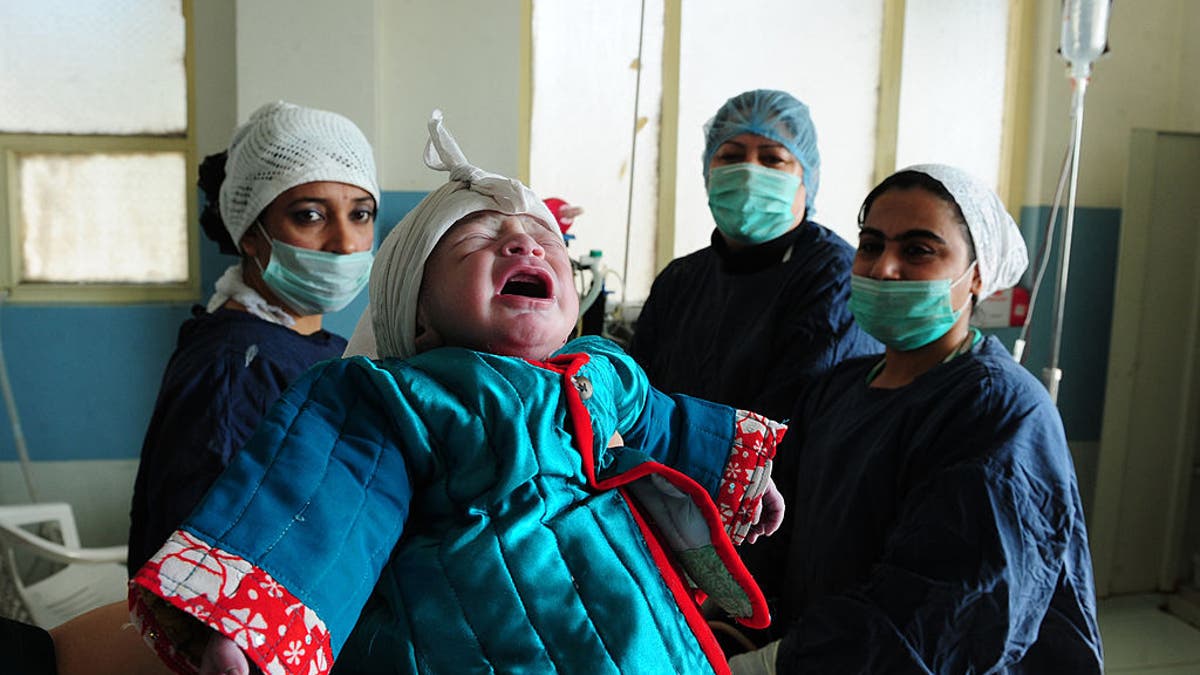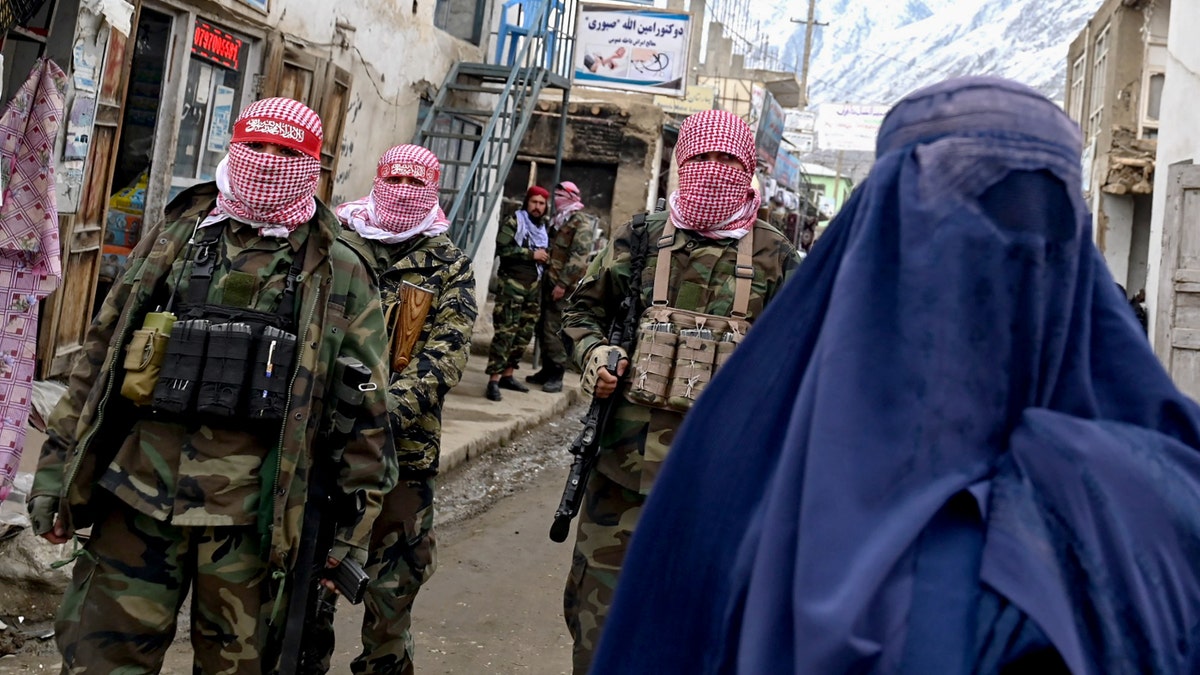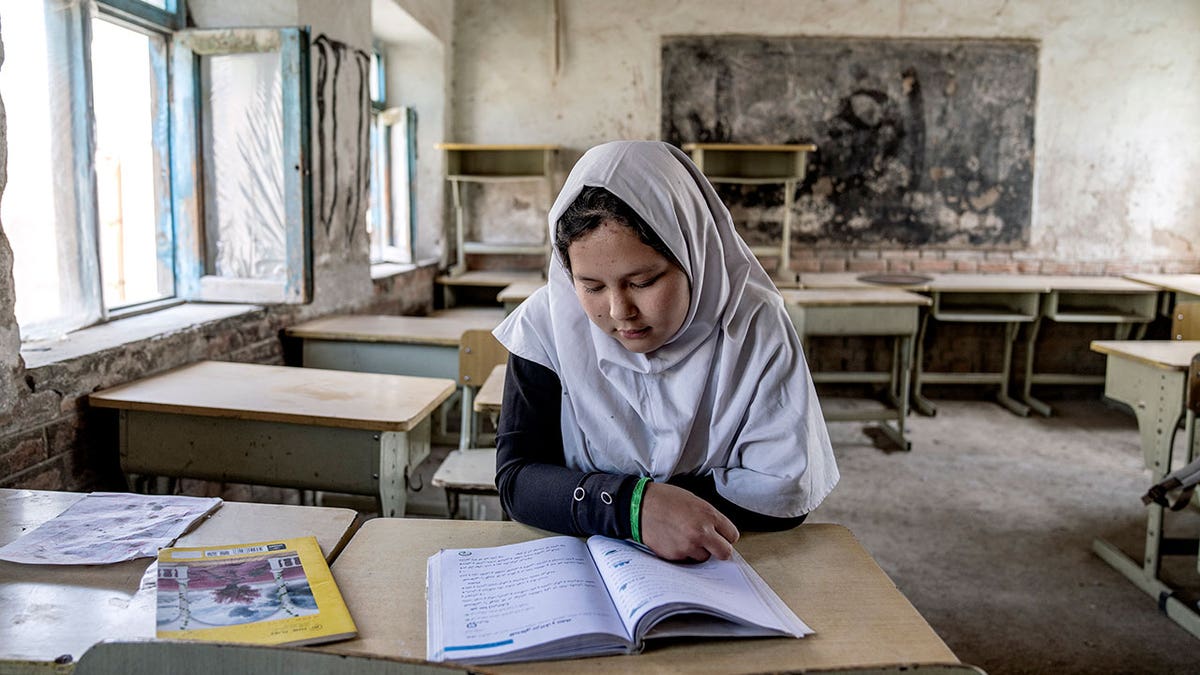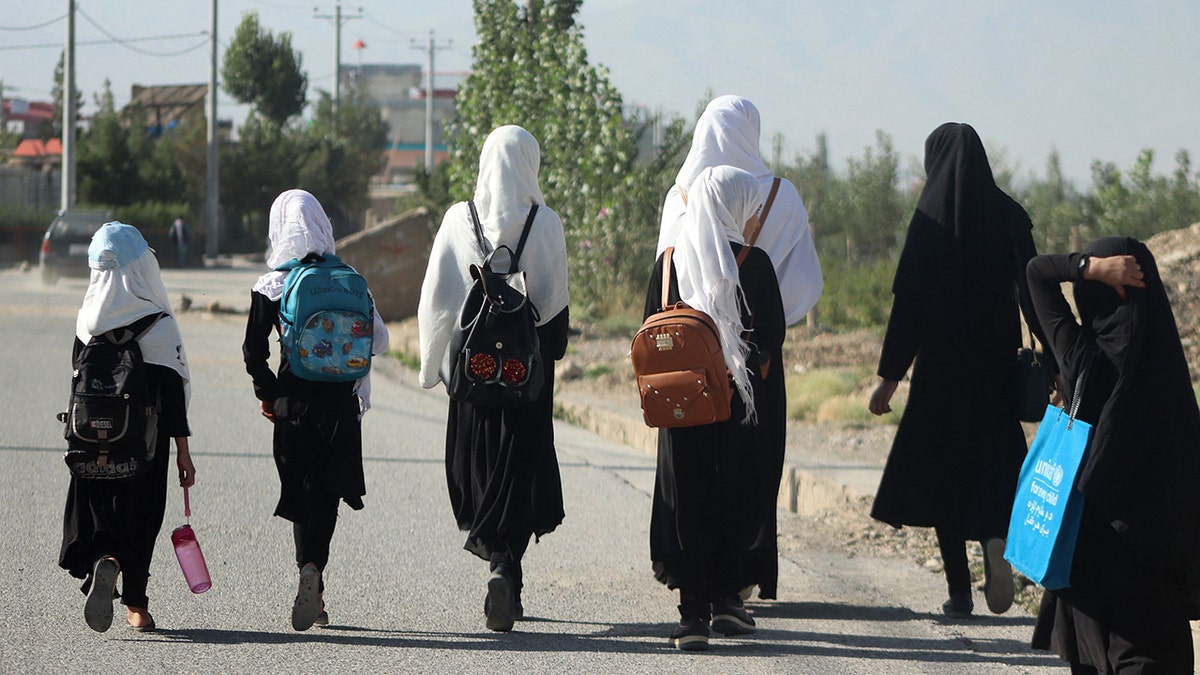The Taliban has reportedly banned women in Afghanistan from attending nursing and midwifery classes in yet another blow to women’s rights since the Taliban takeover. The latest directive closes one of the last remaining avenues women had to get an education.
“This devastating decision has crushed the hopes of hundreds of women who aspired to pursue an education and serve their communities,” Manizha Bakhtari, ambassador and permanent representative of Afghanistan in Austria, told Fox News Digital.

Afghan nurses hold a newborn boy after delivery in the maternity ward of a hospital as he was born on the auspicious “12.12.12” date in Mazar-i-Sharif on Dec. 12, 2012.
Human Rights Watch noted that the Taliban’s supreme leader, Haibatullah Akhundzada, issued the decree and it was communicated by the Taliban’s Ministry of Public Health during a meeting with private medical institutions.
ON 9/11 ANNIVERSARY AFGHAN OPPOSITION LEADER WARNS COUNTRY ONCE AGAIN A ‘SAFE HAVEN FOR TERRORISTS’
The latest decree follows earlier bans from the Taliban on secondary education for girls and universities for women, extinguishing the last glimmer of hope for Afghanistan’s young women.
Ambassador Bakhtari, who is also Afghanistan’s representative to the Organization for Security and Co-operation in Europe, said the ban is not only a gross violation of human rights, but is also a grave setback for Afghanistan’s development.
“Preventing women from participating in essential professions will lead to higher maternal and neonatal mortality rates, undermining the country’s health system and progress,” the ambassador said.

Taliban security personnel stand guard as an Afghan burqa-clad woman walks along a street at a market in the Baharak district of Badakhshan province on Feb. 26, 2024. (Wakil Kohsar/AFP via Getty Images)
Women who were attending courses to study nursing and midwifery were ordered not to attend classes any longer. Nursing and midwifery provided women with one of the last opportunities to have a profession that was exempt from bans the Taliban implemented on women’s employment after taking power in 2021.
U.N. Special Rapporteur Richard Bennett said in a post on X that the “inexplicable and unjustifiable” announcement will have a devastating impact on the entire population if implemented and must be reversed.
3 YEARS AFTER US WITHDRAWAL, AFGHAN RESISTANCE STILL IGNORED BY US, WEST
Access to health care and a lack of adequate services has left Afghanistan’s population vulnerable to disease and even routine illnesses that could be treated with basic medical services. Preventing women from studying at medical institutions harms Afghanistan’s entire population, which is desperately in need of health care workers.
Rural areas will be the hardest hit by the Taliban’s latest ban, where cultural norms prevent male doctors from treating female patients.

A girl reads a book in her classroom on the first day of the new school year, in Kabul, Saturday, March 25, 2023. Afghanistan’s schools open Wednesday for the new educational year, while thousands of schoolgirls remain barred from attending classes for the third year as the Taliban banned girls from school beyond sixth grade. (AP Photo/Ebrahim Noroozi, File)
Afghanistan has one of the highest infant and maternal mortality rates in the world and is one of the most dangerous places on Earth to give birth. According to the World Bank, 620 women die per 100,000 live births due to pregnancy-related causes. The World Health Organization estimated in 2020 that 24 women die every day during childbirth or pregnancy.

Girls walk to their school along a road in Gardez, Paktia province on Sept. 8, 2022. (AFP via Getty Images)
The ban on medical training for women will likely compound Afghanistan’s growing humanitarian crisis that has only worsened since the Taliban came to power and the international community dramatically reduced its financial support over objections to the Taliban’s oppressive policies toward women.
WITH TALIBAN VICTORY, AFGHANISTAN COULD BECOME THE ‘SECOND SCHOOL OF JIHADISM’
More than 23 million people were in need of humanitarian assistance in 2023, according to the U.N. The world body also reported that 4 million Afghans were malnourished, including 3.2 million children under the age of 5.
Afghanistan remains the only country in the world where women and girls are banned from secondary and higher education as well as many sectors of the economy and government, according to Human Rights Watch.
The Taliban have reneged on all of their promises they made following their takeover of Kabul to respect the rights of women. In September 2021, shortly after overthrowing the U.S.-backed Afghan Republic, the Taliban barred young girls from attending secondary school after the sixth grade and then banned women from attending higher education in December 2022.
CLICK HERE TO GET THE FOX NEWS APP
The U.N. and international nongovernmental organizations have urged the Taliban to repeal the directive as well as their other repressive policies toward women.
